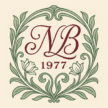Frequently Asked Questions (FAQ)
1. What is a Lordship of the Manor?
A Lordship of the Manor is an ancient English feudal dignity dating back to the Middle Ages. It is not a peerage title (like “Duke” or “Earl”), but represents the historic right of lordship over a manor – a unit of land and jurisdiction recorded in manorial rolls and legal charters. Today, it survives as an hereditary dignity and cultural link to England’s legal and social history.
2. Does the Lordship come with land or property?
Not necessarily. In many cases, including Moor Hall, the title has become detached from the physical estate over the centuries. While the manor house still exists, the Lordship itself is a legal dignity rather than a direct ownership of land.
3. Is a Lordship of the Manor a “noble title”?
Technically, it is a feudal dignity rather than a peerage. However, it is recognised under English law, and its historical holders – including prominent families like the Throckmortons – were part of the local gentry and often deeply intertwined with the aristocracy.
4. Who verifies and records these titles?
Lordships of the Manor are recognised in English common law and can be verified through manorial conveyancing (specialised legal transfer). For Moor Hall, the lineage and legitimacy have been reviewed by the Manorial Society of Great Britain and confirmed by legal counsel during the most recent transfer.
5. Can a Lordship be inherited or sold?
Yes. Unlike peerages (which can only be inherited), a Lordship of the Manor is both heritable and alienable — meaning it can be inherited or conveyed through a legal deed. Once transferred, the title never disappears unless it is formally merged back into the Crown.
6. Why preserve a Lordship today?
A Lordship is not merely a curiosity. It is a cultural and historical trust: a way to preserve centuries of heritage, archives, and stories connected to the English countryside. At Moor Hall, the title is treated as a commitment to document, protect, and share its legacy.
7. Is the title “Lord of the Manor” recognised by the King?
Yes — Lordships of the Manor are acknowledged by the Sovereign as part of England’s legal and historical framework. They are feudal dignities that descend from medieval land tenure and are recognised in English common law.
The King does not “create” new Lordships of the Manor, nor does he personally “grant” these titles today. Their existence is rooted in centuries‑old charters and manorial law, and they are transferred through a process called manorial conveyancing.
When a Lordship changes hands, the legal deed of conveyance is issued in the name of His Majesty King Charles III, as the ultimate authority under whom all land titles in England are held. This confirms the legitimacy of the transaction — but it is the law and historical precedent, not a new royal grant, that sustain the dignity.
8. Is the Lordship of the Manor hereditary, and who inherits it?
Yes. A Lordship of the Manor is an hereditary dignity under English common law.
- If the holder leaves a valid will, the Lordship goes to the chosen heir, who can be a son, daughter, or any designated beneficiary.
- In the absence of a will, inheritance follows the rules of intestacy, which generally follow male‑preference primogeniture: the eldest son inherits first, but if there are no sons, daughters may inherit equally as co‑parceners.
- Historically, some manors had unique customs (e.g., Borough English, where the youngest son inherited), but these are rare exceptions.
Unlike peerages, which have rigid succession rules and cannot be sold, a Lordship of the Manor is both heritable and transferable. It is the intention of the present Lord of Moor Hall that the title will remain within his family line.
9. Where can a Lordship of the Manor be purchased?
Acquiring a Lordship of the Manor is a significant step that requires care and attention to the reliability of the source. The safest channels remain the Manorial Society of Great Britain and its accredited associates, who can ensure professionalism and expertise in the handling of these historic titles.
It is important to remember that a Lordship of the Manor is a genuine piece of English history, a medieval legacy that has endured to the present day. Consequently, it involves a meaningful financial investment: be wary of offers that promise a lordship for just a few pounds. It is simply not credible to become a “Lord of the Manor” at a bargain price.
An authentic lordship must demonstrate continuous historical and dynastic provenance from its creation to the present day. Titles with unexplained gaps or incomplete records risk feeding a market of inauthentic or misleading claims. For this reason, relying on recognised and reputable sources is not only the best protection for the buyer, but also a way to safeguard the history and culture that these ancient titles represent.
📜 Closing note:
“For more information on the history, lineage, or documentation of the Lordship of the Manor of Moor Hall, please contact us directly.”
